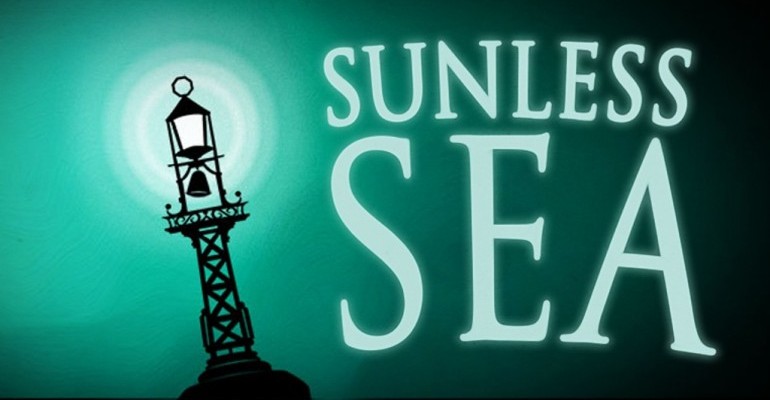“The sea has never been friendly to man. At most it has been the accomplice of human restlessness.”
This Joseph Conrad quote greets me before the main menu screen is even visible, and offers a certain ominous feeling dissimilar to any other game I’ve ever played.
This is a player’s first introduction to “Sunless Sea,” an unsettling ship-sailing adventure which will test both gamers’ skill and sanity, for better or worse. “Sunless Sea” is a unique experience, to be sure, but it is certainly not perfect, even if it does hit a bit more than it misses.
Without any doubt, I can say that the most apparent strength “Sunless Sea” has is the amount of dedication that appears to have gone into developing the game’s world and story.
Your character will begin a sailing career in Fallen London, one of the few remaining hubs resembling civilization in “the Unterzee.” The game doesn’t exactly explain the state of the world much itself, except to say that it was “taken by bats” into the underground long ago.
However, it doesn’t really need to focus on such exposition, since this is the story of the many ship captains you will take control of as you play.

The game’s world is littered with islands that each tell their own tale, whether it’s just an old neglected sailor haven or a forcefully militaristic civilization that developed out of the reach of Fallen London.
Ultimately, this is the largest charm present in “Sunless Sea.” There is such a varied amount of islands, all presenting their independent slices of exposition developed from the overbearing influence of the Unterzee.
This concept might not work as well without excellent writing, but it’s clear that whoever in Failbetter Games’ team was responsible for this world’s creation and development spared no expense in creating extremely good storytelling.
The most fun to be had with the game is in its reading material, not the gameplay itself, which is rather odd considering this is an inversion of a trend common in games today. But it’s not exactly an unwelcome change.
As for gameplay, the game begins by selecting a preferred history for your premier captain, which can range from military veteran to eager explorer, or forgoing a history altogether in favor of building one manually in your exploration of the world.
Your history determines your starting stats, and these will be altered negatively or positively as you continue to explore Sunless Sea by your choices.
These stats come into play when determining your chances of success in ‘dice-roll’ challenges littered across the game. Each captain is a rather personal creation of the player. And I say “each” because your captains will die — a lot.
The game is very quick to tell you this. Its nature is generally not at all forgiving, and each time a captain dies, you are forced to start anew.
This element of gameplay isn’t exactly original when it comes to games, and it isn’t aggravating in and of itself.
What is aggravating is the amount of time you will spend sailing across the Unterzee. While the islands themselves are interesting, the seas in contrast are largely bland unless you deliberately create worse situations for yourself.

For instance, while sailing, your Terror meter will build up. When it becomes high enough, supernatural random events might occur. But triggering these situations might bring you ever so closer to a swift end as well.
Supplies must be managed well, and for new players, it’s not exactly a smooth transition to being able to know and play the game well.
It’s very difficult to gain upgrades that might make your trips across the Unterzee and back to Fallen London easier, and the death of many captains may discourage the less patient player from continuing to play.
Combat on the seas is either especially dull or highly unfair, given enemies only seem to come in a pair of varieties: extremely weak or Godzilla-like strong.
This is likely where Sunless Sea falters the most. The patience of most players will be tested a bit too much, fumbling over and over through the same repetitive motions required to eventually have a half-decent chance of succeeding at anything by becoming better at the game.
All that said, however, the atmosphere of the game is still not quite like any game I’ve ever seen. It may not quite be worth the $18 price tag for many players, but it’s certainly a curiosity to try out eventually, despite its glaring flaws.
If you’re a bit of sucker for more story-driven games, it’s probably not a bad idea to try it out, especially if it shows up in a nice Steam sale.



































